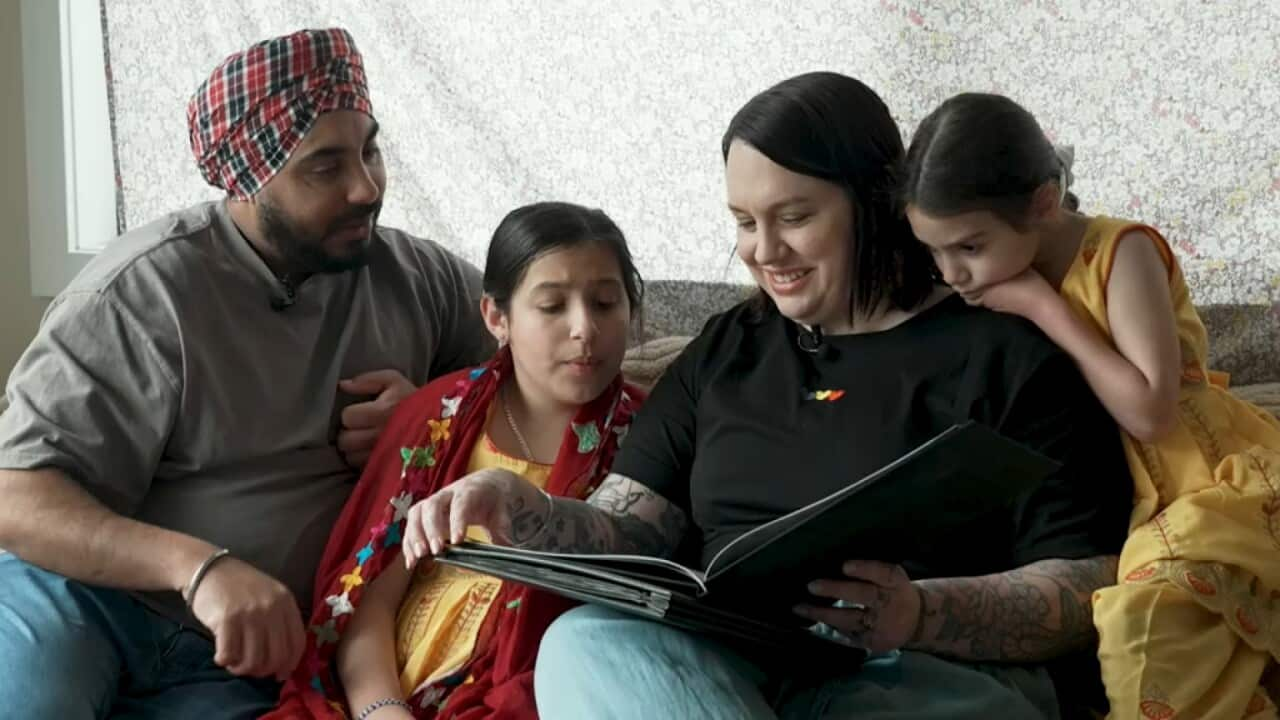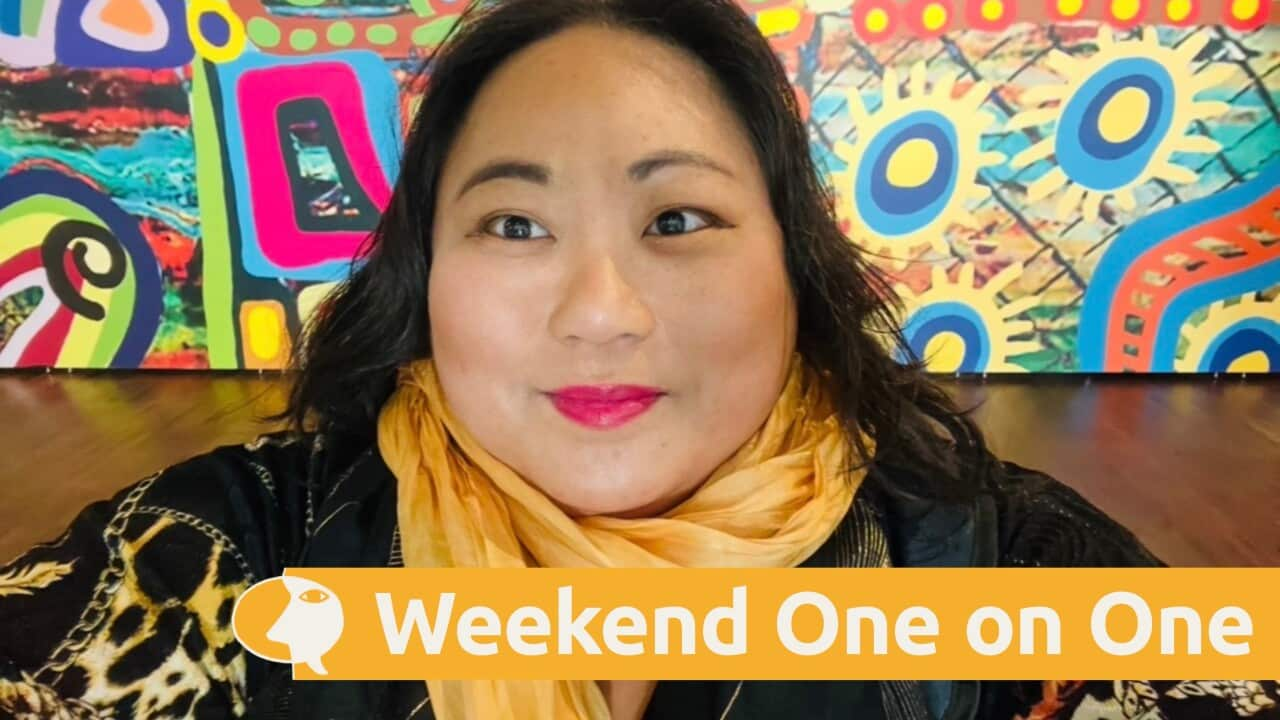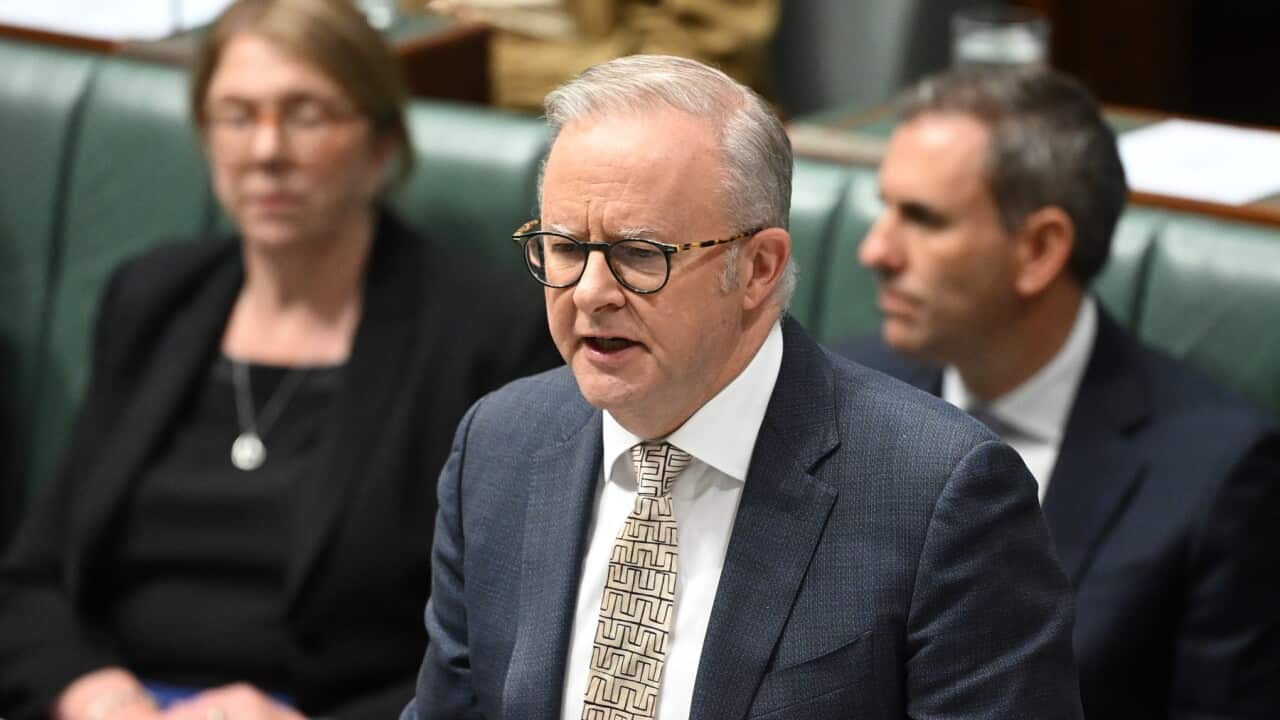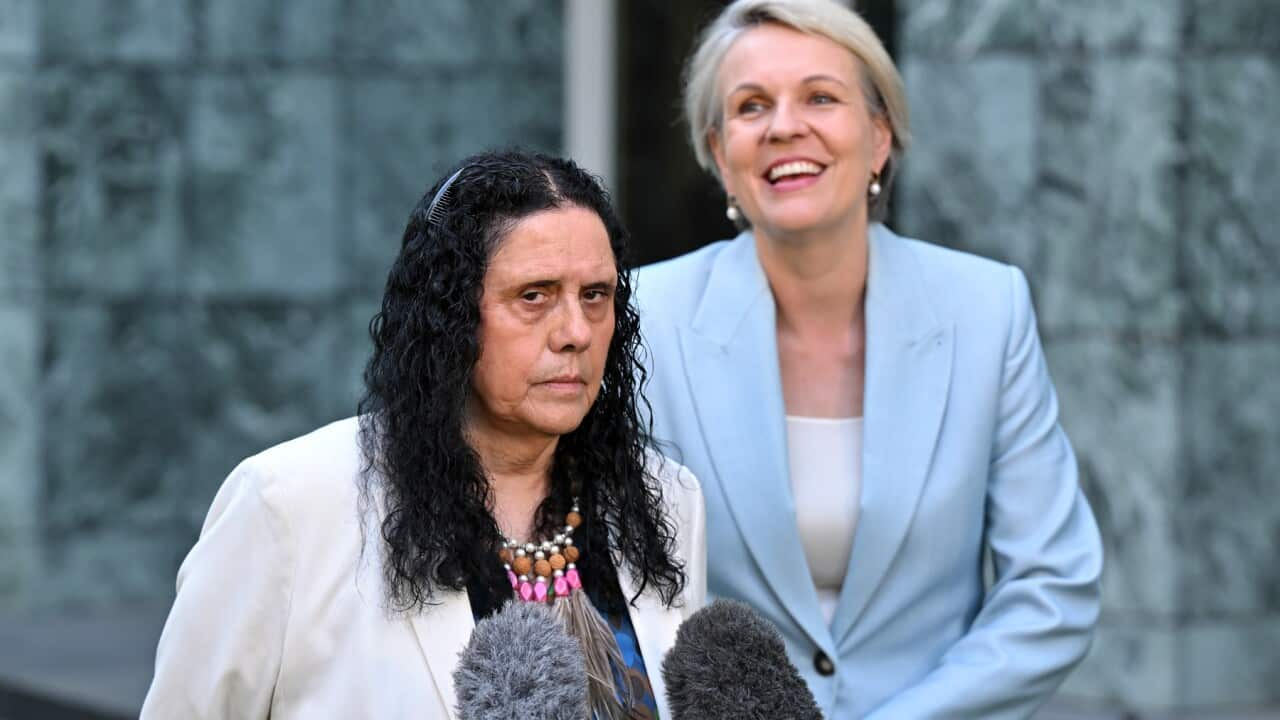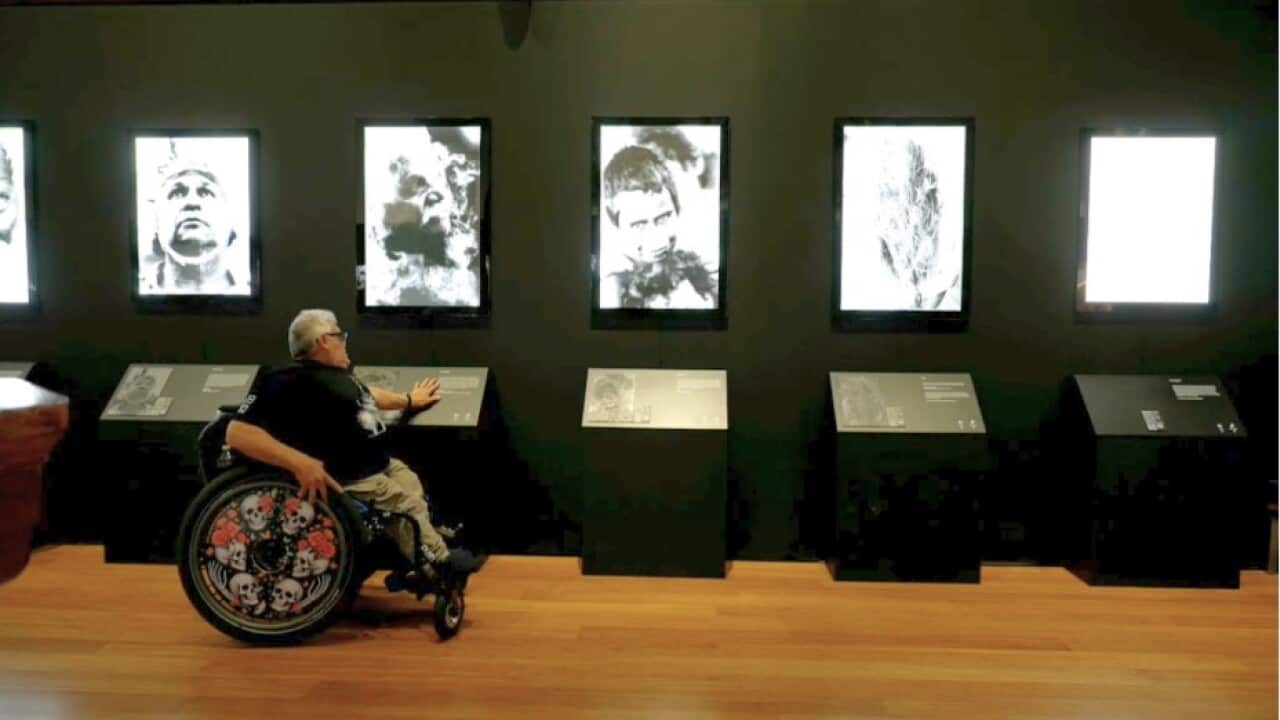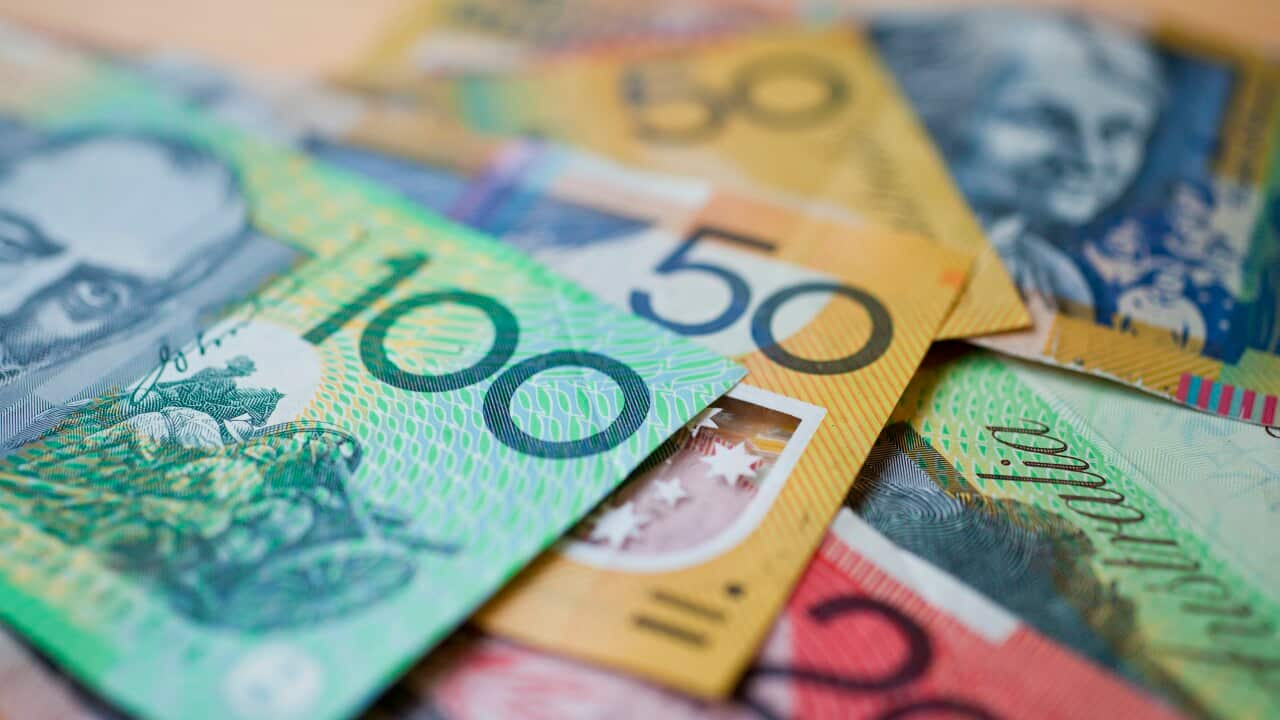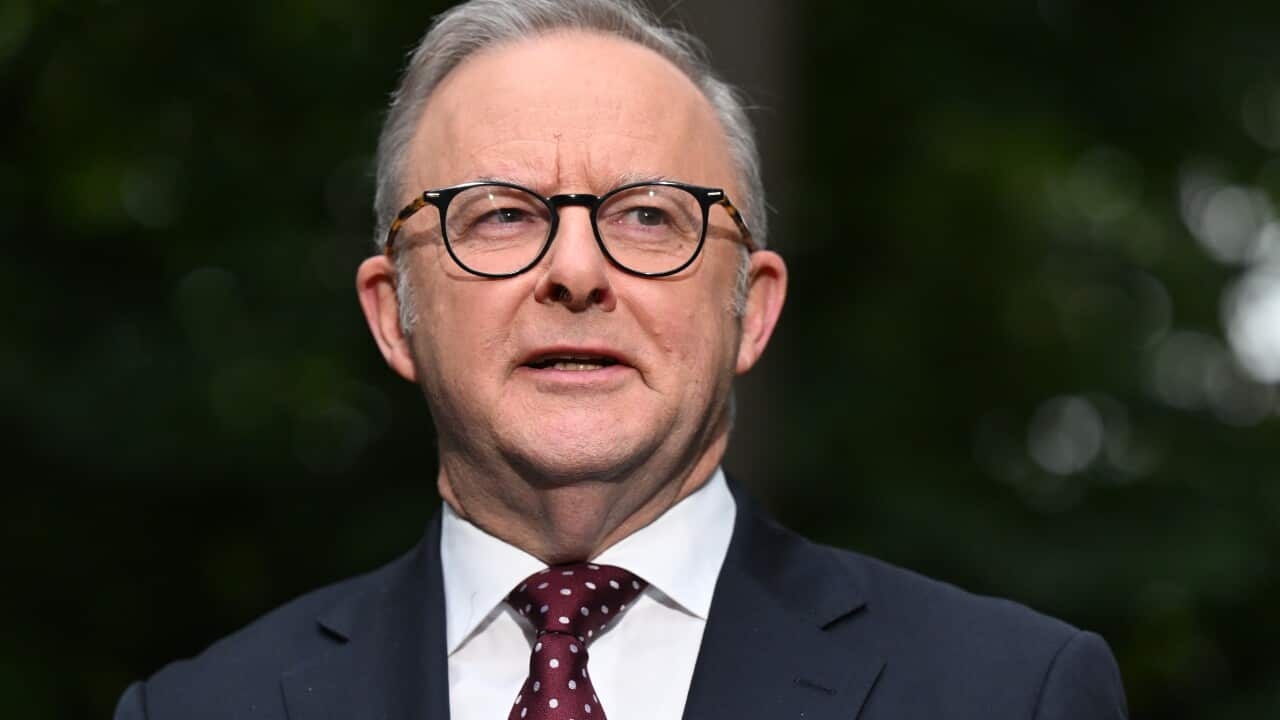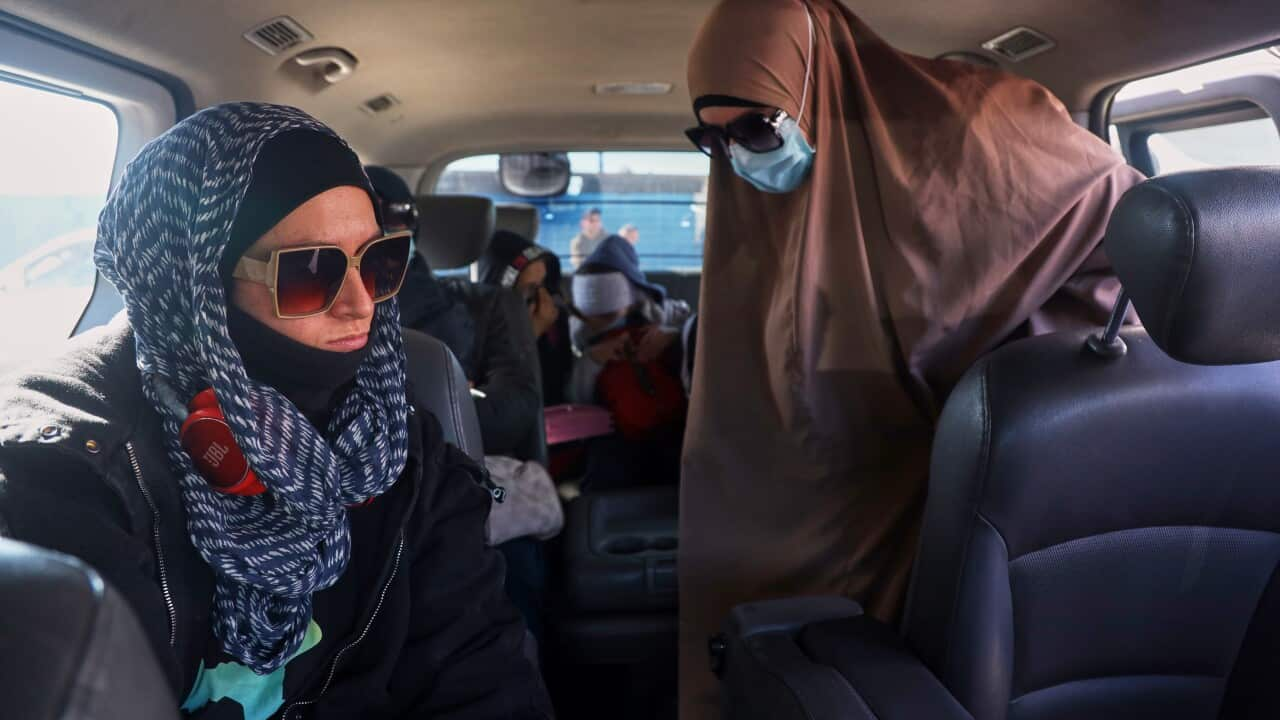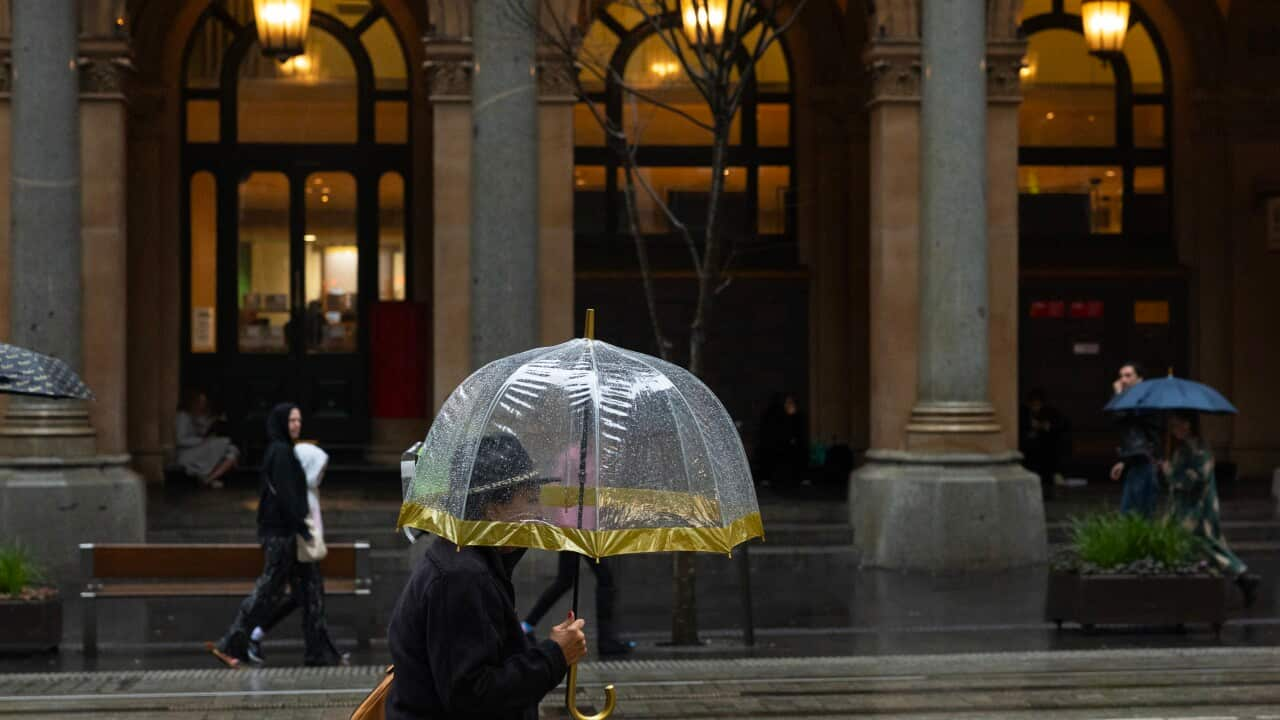Listen to Australian and world news and follow trending topics with SBS News Podcasts.
TRANSCRIPT:
It’s known as the festival of lights - Diwali.
One family in Melbourne says it celebrates their rich cultural heritage: mother Laura-Jane’s First Nations and father Inderjit's Punjabi culture.
This is Laura-Jane Phoenix Singh.
“I'm a proud Quandamooka woman. I was born on Ngunnawal Country. Growing up, it’s obviously not something that I celebrated, but it’s an honour to be married to a Punjabi man and raising Sikh Punjabi children. So I think it's paying homage to that culture and making sure it continues on through our family.”
Inderjit migrated from Punjab, India more than a decade ago.
Two children later, the family is creating a new way to celebrate culture, identity, and love.
"It's not just about being guests in each other's culture, but it's participating it, learning in it so that we're demonstrating that strength to our children. Both Punjabi culture and Aboriginal culture are very inclusive and open and I'm a part of his culture and his family and he's a part of mine."
Together for 10 years, the couple say they’ve found common ground in both of their cultural backgrounds.
Here is Inderjit.
"The similarity is the earth, water and the sky and obviously nature. Aboriginal culture is depending on what we have and sharing with everyone else, same as our Punjabi culture, that we come from a state of agriculture where we totally depend on nature as well."
"Punjabi culture is beautiful. South Asian culture is beautiful, and Aboriginal culture is deeply rooted in country, in connection and it's the foundation of all Australian culture. So I think coming together to celebrate Diwali together, all of us is really important."
According to the 2021 Census, more than a million Australians identify with South Asian heritage, and about 700,000 people in Australia celebrate Diwali each year — a number that continues to grow.
The Punjabi community is Australia’s fastest-growing language group.
For many families, Diwali isn’t just about lights and food; it’s about how love, culture, and celebration can bridge differences.
"Take the moment to spend with the family and make sure we teach the kids why we are celebrating and why it is important."
"Lighting the diyas, but also going to Mela eating, sharing food either with our friends or our family. It means going to Gurdwara. It's talking about the history and what that looks like for our children and for us as a family."
Melas are public Diwali celebrations which include cultural performances, traditional food and market stalls.
"The strength of Diwali is about inclusivity. Triumphing good over evil and the more we learn about each other's cultures and the more we come together, we can make a positive change."
This is Australia’s Diwali, where every light tells a story of cultures coming together.
This story was produced in collaboration with SBS Punjabi.
